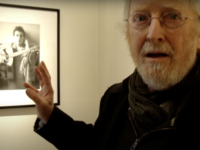Bob Dylan seemed, certainly at first, to lose some essential impetus to create in the 1980s. He came off as neither grouchy or impish, just disinterested. It was as if Dylan was simply trudging forward, barking and grimacing under the weight of expectation, rather than creating from something approaching inspiration – at least until the latter part of the decade.
That said, the period was not without its mirage-like moments of success, if his patient fans could just be, well, patient enough. Luckily for you, we are.
Now, we’ve purposely left out the Traveling Wilburys collaboration as well as rare, sometimes unreleased tracks which were occasionally the equal – if not the better – of the officially issued solo songs, if only because that would create its own concentric debate. So, no “Dignity,” no “Tweeter and the Monkey Man,” no E Street Band version of “When The Night Comes Falling From the Sky,” no “Blind Willie McTell,” no “Series of Dreams.”
This list instead focuses on Dylan’s stand-alone albums, as released, between 1980’s Saved and 1989’s Oh Mercy, though we’re choosing to ignore the former as well as the entirety of 1985’s Empire Burlesque. Wait, did we already start an argument?
“EVERY GRAIN OF SAND,” (SHOT OF LOVE, 1981): For all of his many admonitions toward faith, this astonishingly raw, album-closing confessional lays out every difficulty Bob Dylan found along the way to a hoped-for salvation. The song begins with a broken protagonist searching for purchase in a world of confusion, and it only gets worse as he seems to be surrounded by decaying memories of the past. Until the end, however, he continues searching for the face of God, even if its revelation never seems to come.
For many, this epic moment seemed to signal the catalcysmic end of Dylan’s religious period, which had to that point stretched back to 1979’s Slow Train Coming. At the very least, Dylan appeared to be explaining the retreat from evangelical rock that lay straight ahead – and doing so via a monumentally engaging narrative filled with stark imagery, brutal honesty and, alas, no easy answers.
“SILVIO,” (DOWN IN THE GROOVE, 1988): This congenial, utterly unself-conscious hoot emerged after a period when those had been precious and few, as Bob Dylan handles lyrics from Grateful Dead lyricist Robert Hunter amid whooping backup vocals from the band’s Jerry Garcia, Bob Weir and Brent Mydland. Better than most anything that happened on their end-of-the-decade concert collaborations, “Silvio” rattles along on a hippified groove while Dylan coos with a bristling salaciousness. Certainly, it saves a deadly dull, catch-as-catch-can album that featured leftovers from previous sessions, weirdly ineffective covers and some phoned-in originals.
Hunter, for his part, has said that Dylan’s interpretations of both “Silvio” and “Ugliest Girl in the World” were more important to him than honors like the Grammys and the Rock and Roll Hall of Fame: “As far as I’m concerned, Bob Dylan has done two of my songs, and those other things sound far away, distant, and not very interesting.”
“JOKERMAN,” (INFIDELS, 1983): Bob Dylan uses themes both Biblical and secular to tear down political charlatans. Or was it a dark reflection on Judaism? A rumination on false messiahs? A cutting indictment of his own career missteps? Such are the enduring mysteries of classic Bob Dylan, the singer-songwriter’s wild card — making this the earliest indication of a long-hoped-for return to form.
In manner and tone, “Jokerman” felt like a throwback to the promise of his mid-1970s work. And the song, as with all of the Mark Knopfler-produced Infidels, had a sleek approach that updated Dylan’s sound without dismantling its foundational wit. There’s a labyrinthine quality to the track that makes it endlessly fascinating, whatever becomes of our hero’s quest for meaning in dangerous times.
“BROWNSVILLE GIRL,” (KNOCKED OUT LOADED, 1986): This hallucinagenic cowboy odyssey might be the only thing to recommend from a confusingly constructed, justifiably forgotten album project. Bob Dylan first approached this subject matter on a demo called “New Danville Girl,” updating the Woody Guthrie classic, before working with Sam Shepard on the finished track. The presence of the playwright, perhaps, has led some to believe that “Brownsville” was a response-song to “Doin the Things that We Want To,” where Lou Reed references Shepard’s 1983 play Fool for Love.
Whatever its origins, “Brownsville Girl” is almost enough to justify the price of admission, as Dylan travels on a zig-zagging journey toward the Texas panhandle, collecting adventures and misadventures, friends and double crosses, strange dreams and stunning courtroom drama – all retold, as if in a reverie, while waiting in line for a Western.
“EVERYTHING IS BROKEN,” (OH MERCY, 1989): “The past doesn’t pass away so quickly here,” Bob Dylan said of New Orleans, where this album was recorded – and that’s probably how his own legacy felt: like something meant to be put away, and yet still blatantly jutting up toward the gun-metal sky. The sessions were a struggle at first, until Dylan and producer Daniel Lanois found common ground.
“Everything Is Broken” was a key part of that process, as Dylan fashions a mercurial, pissed-off new perspective – one that took in all of the apocalyptic concerns that would thread their way into his narrative voice from then on. Turns out, he’d finally become comfortable in this old man’s skin: “Everything is broken, or it looks that way: chipped, cracked, in need of repair,” Dylan said. “Things are broken, then rebroken, made into something else, then broken again.” A theme for both Oh Mercy and for Dylan’s third act was taking shape.
- The Bright Spots in George Harrison’s Troubled ‘Dark Horse’ Era - December 29, 2024
- The Pink Floyd Deep Cut That Perfectly Encapsulates ‘The Wall’ - November 29, 2024
- Why Pink Floyd’s ‘The Endless River’ Provided a Perfect Ending - November 11, 2024




Sad testimony to his wretched state of mind during the middle part of the eighties is the live rendition of the masterpiece Brownsville Girl heard here, too drunk to get past the refrain, and he was that way almost everytime I saw him on stage during those days, which almost made me long back to his laughably high pitched sung gospelsongs of the oversimplistic Saved period, that at least was honest to heart and driven. It was the bottom of the pit, and Oh Mercy was only a first, though beautiful attempt to rise again, lyrically it was a harrowing bare bone testament to his feeling of loss.
Still, yes there were moments keeping you in hope for such a ressurection. Silvio to me was not really one of them, even it was a relief for being nice and funny. Jokerman had me awestruck. Every Grain of Sand touched me in spite of its archaic Biblic language and the psalm like melody, I have no fond memories of the fundamentalistic church I grew up in. Still, in fact hte only reason to hang on to Dylan was my old love for him and the few bootleg songs that I could lay my hand on: the overwrought but fantastic sounding rather insane Angelina and Carribean Wind, the rocking When the Night Comes Falling with the E Street, Dignity and Series of Dreams yes. Blind Willie Mctell came really alive for me only in its later live renditions of the 90’s. I am still waitin for a good compilation of these dark ages…
Hard to fathom the omission of “I and I” from this list–it’s one of Dylan’s greatest songs ever. Other contenders might be his terrific cover of John Hiatt’s “The Usual” from the “Hearts of Fire” soundtrack–Dylan’s one decent contribution an otherwise forgettable movie. Or how about “The Ugliest Girl in the World,” perhaps the funniest song Bob ever recorded? I’m also a fan of “Band of the Hand” from the movie of the same name–Bob at his finger-pointing best. I would agree that the ’80’s were a fallow period for Bob, but I caught the Dylan/Petty tour in Indianapolis in ’86 and absolutely loved it!
If this list had gone to 10 items, I imagine that “I and I” would have made the cut. There are certainly others worth mentioning — including “The Groom’s Still Waiting At The Altar,” “Dark Eyes,” and “Most of the Time.” As deflating as this period was for Dylan, in particular in the middle 1980s, it wasn’t all bad. Even 1986’s Knocked Out Loaded had “Brownsville Girl.” Though, of course, that was about it.